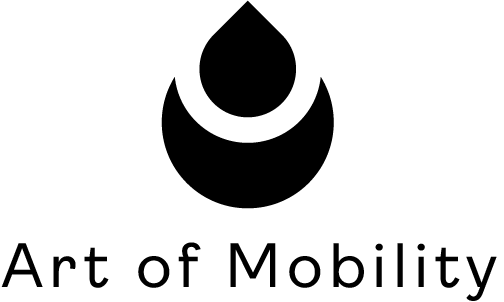
Preparing for surgery involves more than just showing up on the day of the procedure. Building physical strength, improving flexibility, and understanding what to expect during recovery can all contribute to better outcomes. That’s where pre-surgical physiotherapy comes in. In this blog, we’ll explore what pre-surgical physiotherapy is, why it’s important, what kinds of exercises it includes, and how it can help you recover faster and more effectively. Whether you’re preparing for joint replacement, spinal surgery, or another procedure, learning about prehab can help you take an active role in your recovery.
Pre-Surgical Physiotherapy Explained
Pre-surgical physiotherapy, also known as prehabilitation, is a structured approach that helps people improve their strength, mobility, and overall physical condition before undergoing surgery. The main goal is to prepare the body to better handle the demands of the procedure and promote a faster, smoother recovery afterward. These programs typically include a combination of targeted strengthening exercises for the area being operated on, range of motion work to maintain joint flexibility, and cardiovascular conditioning to build endurance. Clients also receive education on what to expect after surgery, including how to safely move, use assistive devices if needed, and manage post-operative challenges.
For those undergoing chest or abdominal procedures, breathing exercises may also be incorporated to support lung function and reduce the risk of complications. Every session is supervised by a licensed physiotherapist, who works in coordination with the surgical team to tailor the plan based on the individual’s specific needs and health status. By focusing on both physical preparation and education, pre-surgical physiotherapy helps people enter surgery with greater resilience and confidence.
Benefits of Pre-Surgical Physiotherapy
The benefits of pre-surgical physiotherapy go beyond physical conditioning. It also contributes to mental preparation and better overall surgical outcomes. Some of the primary benefits include:
- Increased Muscle Strength and Joint Flexibility: Prehab focuses on the muscles and joints that will be affected by surgery, helping preserve as much function as possible before the procedure.
- Pain Management Before Surgery: Physiotherapy techniques can help manage existing pain or inflammation, making it easier to participate in exercise and maintain mobility.
- Improved Circulation and Breathing Function: Cardiovascular training and breathing exercises promote better oxygenation, which supports healing.
- Better Mobility and Balance: Individuals who enter surgery with improved mobility often return to walking, climbing stairs, and performing daily tasks more easily afterward.
- Reduced Anxiety and Stress: Learning what to expect during and after surgery gives people peace of mind and a sense of control.
In short, pre-surgical physiotherapy helps people approach surgery in the strongest and most informed condition possible.
Types of Surgeries That Can Benefit from Pre-Surgical Physiotherapy
Pre-surgical physiotherapy is commonly recommended for various orthopedic and non-orthopedic procedures. While not every surgery requires formal prehab, many benefit significantly from it, particularly those involving mobility or joint function.
Some common surgeries where pre-surgical physiotherapy is beneficial include:
- Total Knee Replacement (TKR): Improves strength in the quadriceps and hamstrings, enhances balance, and prepares the joint for smoother recovery.
- Total Hip Replacement (THR): Targets hip stability, range of motion, and walking mechanics.
- Shoulder Surgery: Helps maintain shoulder mobility and strength before rotator cuff repair or labral surgery.
- Spinal Surgery: Improves posture, core stability, and spinal alignment to reduce post-op complications.
- ACL Reconstruction: Focuses on knee mobility, leg strength, and neuromuscular control.
- Cardiac or Thoracic Surgery: May include breathing exercises and gentle aerobic conditioning.
- Abdominal Surgery (e.g., hernia repair): Encourages proper posture and breathing patterns to support abdominal healing.
Physiotherapists tailor the program to the individual’s surgery type, health status, and fitness level.
Exercises Included in a Pre-Surgical Physiotherapy Program
The exercises in a pre-surgical physiotherapy program vary based on the surgical site, mobility level, and client goals, but some common components include:
- Strength Training: Exercises may target the muscles around the affected joint. For example, squats and leg presses for knee surgery, or resistance band work for shoulder surgery.
- Range of Motion Exercises: Gentle stretching and mobility drills help preserve flexibility and joint movement before surgery.
- Aerobic Conditioning: Light cardio like stationary biking, walking, or low-impact interval training supports overall endurance.
- Breathing Exercises: For surgeries affecting the chest or abdomen, diaphragmatic breathing or incentive spirometry may be used to improve lung capacity.
- Balance and Coordination Drills: These improve joint stability and help with post-surgery gait training.
- Post-Operative Education: Clients may be taught how to use crutches, walkers, or braces, and how to navigate stairs or get out of bed safely post-op.
Each exercise plan is tailored to your condition, goals, and comfort level to ensure safe and gradual progress.
How Long Before Surgery Should You Start Physiotherapy?
The ideal time to begin pre-surgical physiotherapy depends on the type of surgery and your current physical condition, but in most cases, starting at least 4 to 6 weeks before surgery is recommended. This allows enough time to build strength, improve mobility, and establish helpful habits before your procedure.
In some cases, such as elective orthopedic surgeries, people may begin physiotherapy even earlier to maximize the benefits. Starting sooner also gives your physiotherapist time to identify any mobility restrictions, weaknesses, or movement patterns that could impact your recovery.
Even if your surgery is scheduled with short notice, a few targeted sessions can still help reduce stiffness, teach post-operative techniques, and mentally prepare you for what’s ahead. The earlier you start, the more you can gain from the process.
Customizing Pre-Surgical Physiotherapy Plans for Each Individual
Pre-surgical physiotherapy is not a one-size-fits-all approach. Every plan is carefully tailored to the client’s individual condition, the nature of their surgery, and their personal goals.
The customization process begins with a thorough initial assessment, which includes:
- A review of the client’s medical history and surgical details
- Physical tests to assess strength, range of motion, flexibility, posture, and balance
- Consideration of any chronic conditions, previous injuries, or mobility limitations
- Discussion of personal goals, such as returning to specific activities or maintaining independence
Based on this assessment, the physiotherapist designs a plan that focuses on improving areas of weakness and preparing the body for the specific demands of the surgery. As the surgery date approaches, the plan may be adjusted to prioritize rest, maintain gains, or review post-operative care techniques.
The result is a program that is both safe and effective, designed to meet the unique needs of each client and maximize recovery potential.
Surgeries Where Pre-Surgical Physiotherapy Is Not Recommended
While pre-surgical physiotherapy is beneficial for most people, there are a few scenarios where it may not be recommended or appropriate. These include:
- Emergency surgeries: In urgent medical situations (e.g., trauma or acute appendicitis), there may not be time for prehabilitation.
- Severe medical instability: Individuals with unstable cardiovascular conditions, uncontrolled hypertension, or active infections may not be cleared for physical activity prior to surgery.
- Surgeries unrelated to movement or physical recovery: Some procedures, such as certain types of eye or minor dermatological surgeries, may not benefit from physiotherapy in the same way.
That said, even in these cases, a brief pre-operative consultation with a physiotherapist can still be helpful to review mobility aids, prepare for hospital discharge, or prevent post-operative complications like bedrest deconditioning.
If there’s uncertainty, it’s always best to consult with both your surgeon and a registered physiotherapist to determine whether pre-surgical physiotherapy is a good fit for your individual circumstances.
Bounce Back Stronger
A smoother, safer recovery begins before the surgery ever takes place. Pre-surgical physiotherapy helps you enter your procedure stronger, more prepared, and with greater confidence about the healing process ahead. Whether you’re facing an orthopedic operation or another planned procedure, taking time to build strength and mobility beforehand can lead to significantly better results.
At Art of Mobility in Mississauga, we design personalized pre-surgical physiotherapy programs to help people prepare for surgery and optimize recovery. Contact us today to schedule a consultation and take the first step toward a stronger, more successful post-surgical outcome.

Hi, my name is Thusheinth Sivarajah and I am a Physiotherapist and Certified Personal Trainer who completed his Master’s in Physical Therapy program at Queen’s University.Once you get to know me, you’ll realize that there is never a dull moment when you work with me. I am devoted to getting you...
Recent Posts

